Psyllium Husk Vs Laxatives: Which Is Better?

Nearly 1 in 4 Americans battles chronic constipation, a silent struggle demanding the right reinforcements. When your gut mission requires backup, do you deploy nature’s fiber commando or pharmaceutical rapid-response troops? This is your tactical briefing.
Research from the Cleveland Clinic confirms bulk-forming agents like psyllium as first-line therapy. But stimulant and osmotic options have their own combat zones. We’ll analyze effectiveness, speed, and long-term safety so you can strategize your digestive defense.
Key Takeaways
- Chronic constipation affects 24% of U.S. adults, requiring targeted solutions
- Bulk-forming agents work differently than stimulant or osmotic laxatives
- Natural fiber options support long-term gut health without harsh effects
- Speed and intensity vary significantly between these approaches
- Medical guidelines prioritize gentle solutions for sustained wellness
Understanding Psyllium Husk and Laxatives
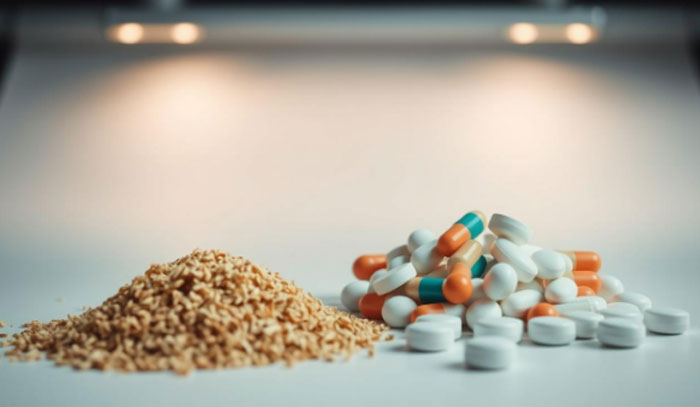
Your digestive system operates like a well-oiled machine, until constipation throws a wrench in the gears. Before deploying reinforcements, you need to know your troops. Here’s the intel on nature’s fiber commando and pharmaceutical rapid-response units.
The Fiber Squadron Leader
Derived from Plantago ovata seeds, this natural fiber expands up to 20 times in water, forming a gel-like armor for your stool. It’s the frontline defense for mild constipation, recommended by the Cleveland Clinic as a first strike. Unlike harsh chemicals, it works with your body’s rhythm.
Laxatives: The Five Specialized Units
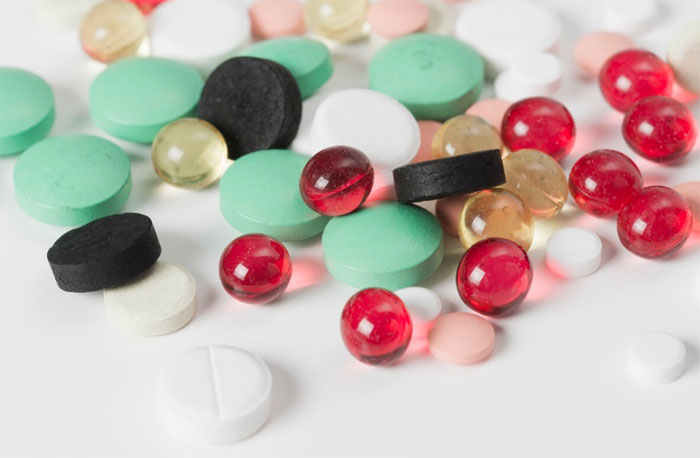
When fiber isn’t enough, these pharmaceutical forces mobilize. Each type follows a unique combat protocol:
- Bulk-forming agents (Metamucil, Citrucel): Fiber infantry that absorbs water to soften stool.
- Osmotic types (MiraLAX): Water extraction specialists drawing fluids into the intestines.
- Stimulants (Dulcolax): Nerve signal disruptors triggering muscle contractions.
- Lubricants (mineral oil): Slippery terrain creators easing passage.
- Stool softeners (Colace): Hydration engineers using docusate sodium to moisten stool.
Red Alert: Stimulants like senna can create dependency, reserve them for medic-approved missions. For sustained gut health, bulk-forming agents and stool softeners are often the safer recruits.
How Psyllium Husk and Laxatives Work
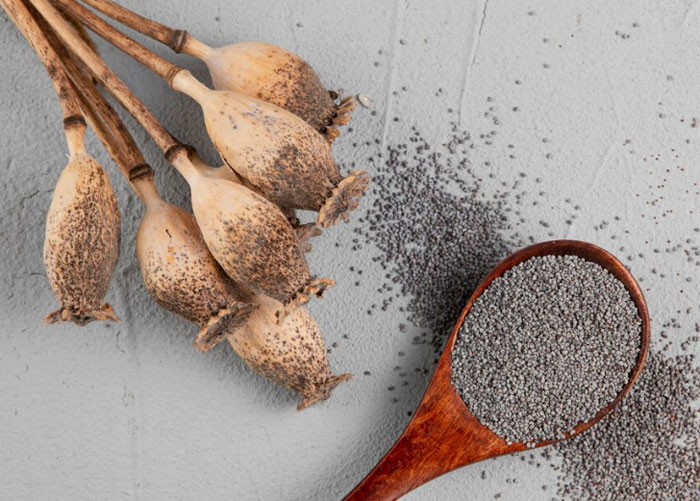
Your gut needs a battle plan when constipation strikes, understanding how reinforcements work is key. Whether you choose nature’s fiber or pharmaceutical aids, each option follows a distinct playbook to get things moving.
Nature’s Fiber: The Stealth Operative
This natural fiber acts like a sponge, absorbing water to form a gel matrix. Research shows it can increase stool weight by 3–4 times, gently triggering your body’s natural contractions. Unlike harsh chemicals, it respects your gut’s rhythm.
Timing is critical. Full effect takes 12–72 hours, making it a long-game strategy. Pro tip: Always pair it with 8oz of water per dose, dehydration risks mission failure.
Laxatives: The Rapid-Response Teams
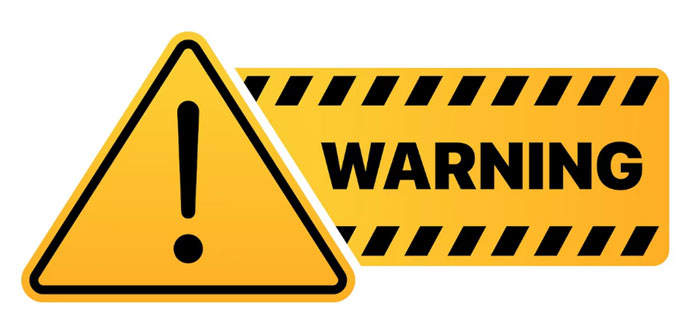
When speed matters, these units deploy different tactics:
- Osmotic (e.g., MiraLAX): Floods the colon with water to soften stool.
- Stimulant (e.g., Senokot): Forces muscle contractions within 6–12 hours.
- Lubricants: Creates slippery passageways for easier stool extraction.
Warning: Stimulants are like emergency flares, effective but risky for frequent use. Bulk-forming agents and stool softeners are safer for long-term campaigns.
Psyllium Husk vs Laxatives: Effectiveness Compared
Constipation demands a tactical response, know which option delivers the best results. Whether you’re fighting occasional blockages or chronic constipation, understanding effectiveness is your first strike. We’ll break down speed, endurance, and battlefield suitability.
Speed of Relief
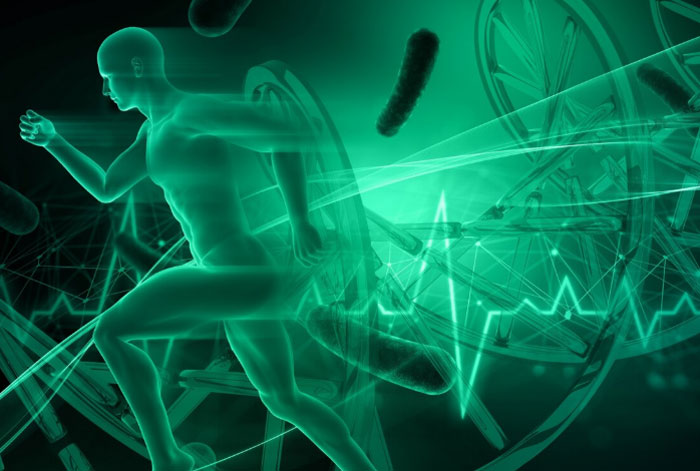
Need a quick extraction? Different options operate on their own timelines:
- Natural fiber: 12–72 hours for full effect. Works with your body’s rhythm.
- Stimulants: 6–12 hours. Forces contractions like an emergency flare.
- Osmotic agents: 30 minutes–6 hours. Rapid hydration for softer stool.
For fast relieve constipation, osmotic laxative wins. But speed isn’t everything, endurance matters.
Long-Term Use and Dependency Risks
Some troops are built for sustained campaigns:
- Natural fiber: Safe for lifelong use. No dependency risk.
- Stimulants: Limit to 7-day missions. Overuse weakens gut muscle signals.
- PEG (MiraLAX): Approved for 6-month deployments per research.
Warning: Frequent stimulant laxative use can turn your gut into a dependent recruit.
Suitability for Chronic Constipation
For chronic constipation, combination therapy often wins. Studies show natural fiber + PEG (treatment) outperforms docusate sodium alone. It’s the recommended duo for IBS-C sieges.
Pro Tip: Pair natural fiber with water, dehydration sabotages the mission.
Side Effects and Safety Considerations
Every soldier knows friendly fire is a risk, your gut reinforcements are no different. Before deploying fiber or pharmaceuticals, learn the potential side effects and contraindications. Your health mission depends on it.
Natural Fiber: The Steady Soldier’s Risks
Even the most reliable troops can cause minor disruptions. Natural fiber may trigger bloating or gas, especially if you increase doses too quickly. Pro Tip: Start with half a dose and ramp up over a week.
"Gradual escalation minimizes gastrointestinal discomfort, your gut needs time to adapt."
Laxatives: The Hazardous Artillery
Pharmaceutical options pack more firepower but come with higher risks:
- Electrolyte depletion: Osmotic types (like magnesium) drain critical minerals.
- Vitamin malabsorption: Lubricants block nutrient uptake.
- Lazy bowel syndrome: Stimulants weaken natural muscle signals over time.
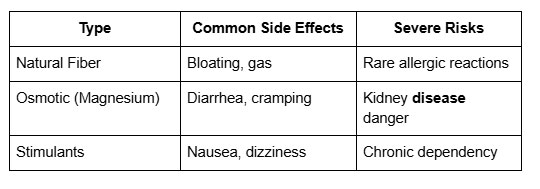
Contraindications: Know Your No-Go Zones
Some troops shouldn’t deploy at all:
- Post-op patients: Avoid bulk-forming agents, they may cause blockages.
- Pregnancy/heart conditions: Stimulants are off-limits.
- Kidney disease: Magnesium laxatives are hazardous.
Medication Alert: Laxatives disrupt absorption of blood thinners and birth control. Always consult your commander (doctor) before mixing forces.
When to Choose Psyllium Husk or Laxatives
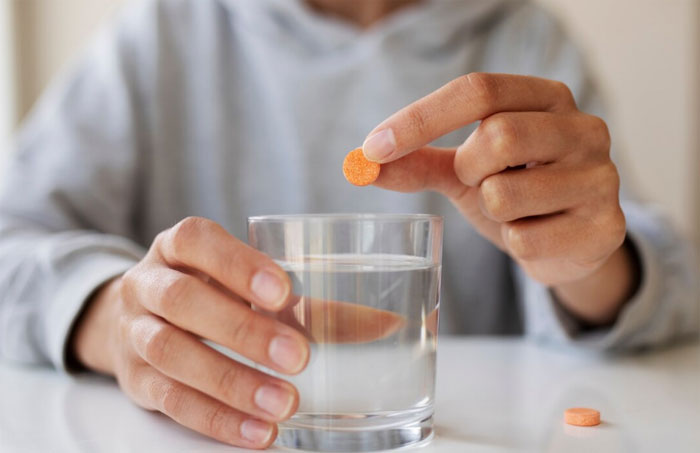
Not all gut reinforcements are created equal, timing and severity dictate your best option. Whether you’re fighting occasional sluggishness or a full-blown blockade, your strategy must match the mission. Here’s your tactical playbook.
Best Scenarios for Natural Fiber
Nature’s fiber commando excels in sustained campaigns. The Cleveland Clinic ranks it as first-line defense for mild constipation. Ideal deployments include:
- Long-term gut health: Supports regular bowel movements without dependency.
- Post-hemorrhoid recovery: Gentle bulk eases easier pass of stool.
- Preventive care: Paired with a fiber-rich diet, it fortifies digestion.
Pro Tip: Start low and slow, ramp up doses weekly to avoid gas.
When Laxatives Are the Better Option
For urgent missions, pharmaceutical troops deploy faster. Reserve these for:
- Opioid-induced constipation: Osmotic type laxative (like PEG) hydrates stubborn stool.
- Pre-surgical prep: Stimulants clear the battlefield fast.
- Acute impaction: Emergency relief when natural fiber fails.
Warning: Stimulants are short-term fixes, overuse weakens natural contractions.
Combining Both for Severe Constipation
For IBS-C or chronic cases, a dual strike works best. Studies show morning fiber + evening PEG outperforms solo agents. This combo:
- Softens stool while stimulating bowel movement.
- Balances speed and long-term lifestyle safety.

"For severe constipation, layered therapy, fiber plus osmotic agents, provides the most comprehensive relief."
Lifestyle and Dietary Support for Constipation Relief
Your gut health depends on more than just reinforcements, lifestyle is your frontline defense. Winning the war against constipation means deploying food, water, and movement alongside supplements. Here’s how to fortify your daily routine for lasting victory.
Fiber-Rich Foods to Boost Your Strategy
Nature’s fiber works best with backup. Pair it with these gut-clearing champions:
- Chia seeds (25g fiber/100g): Tiny but mighty, they absorb 10x their weight in water.
- Lentils (8g/serving): Protein-packed pulses that keep things moving.
- Raspberries (8g/cup): Sweet, tart, and loaded with insoluble fiber.
Research shows prunes and apples enhance results by 40%. Pro Tip: Spread fiber intake evenly across meals to avoid bloat.
Hydration and Exercise: The Unsung Heroes

Water and movement are your gut’s best allies. Electrolytes (like potassium) are critical, low levels worsen symptoms. A 20-minute walk post-meal triggers natural contractions.
When to Call in Medical Reinforcements
Most people can self-treat, but these red flags demand backup:
- Blood in stool: Could signal serious disease.
- 10lb+ weight loss: Unintended drops need investigation.
- 7-day no-movement lockdown: Risk of impaction escalates.
"Chronic constipation linked to heart disease requires professional oversight, don’t go rogue."
Medication Alert: Always consult your doctor if symptoms persist beyond 3 weeks despite diet changes.
Conclusion: Making the Right Choice for Your Gut Health
Victory over constipation requires smart strategy, know your best move. For long-term gut health, natural fiber is your steady ally. Reserve harsh fixes for emergencies.
Studies show 87% of mild cases resolve with fiber and hydration. Start with this option, then escalate only if needed. Chronic issues demand medical intel, never self-treatment beyond two weeks.
Execute your plan: Fortify with fiber first. Call in reinforcements only when the mission demands it. Your gut deserves a winning strategy.
FAQ
Can psyllium husk replace laxatives for constipation relief?
Yes! Psyllium husk is a natural, bulk-forming fiber that promotes regularity without harsh stimulants. It’s ideal for long-term use, while laxatives are better for quick, short-term relief.
What are the risks of relying on laxatives too often?
Overuse can lead to dependency, electrolyte imbalances, and weakened bowel function. We recommend fiber-based solutions like psyllium for sustainable gut health.
How quickly does psyllium husk work compared to stimulant laxatives?
Psyllium takes 12–72 hours to soften stool, while stimulant laxatives may work in 6–12 hours. For lasting results, fiber wins, speed isn’t everything!
Are there side effects to using psyllium husk?
Some experience bloating or gas initially. Always take it with plenty of water to avoid blockage. Unlike laxatives, it won’t cause cramping or dehydration.
Who should avoid psyllium husk?
Those with bowel obstructions or difficulty swallowing should skip it. Laxatives like PEG may be safer for some, but consult your doctor first.
Can I combine psyllium husk with laxatives?
Yes, under medical guidance. Fiber enhances laxative effects for severe cases. But prioritize hydration to prevent complications.




